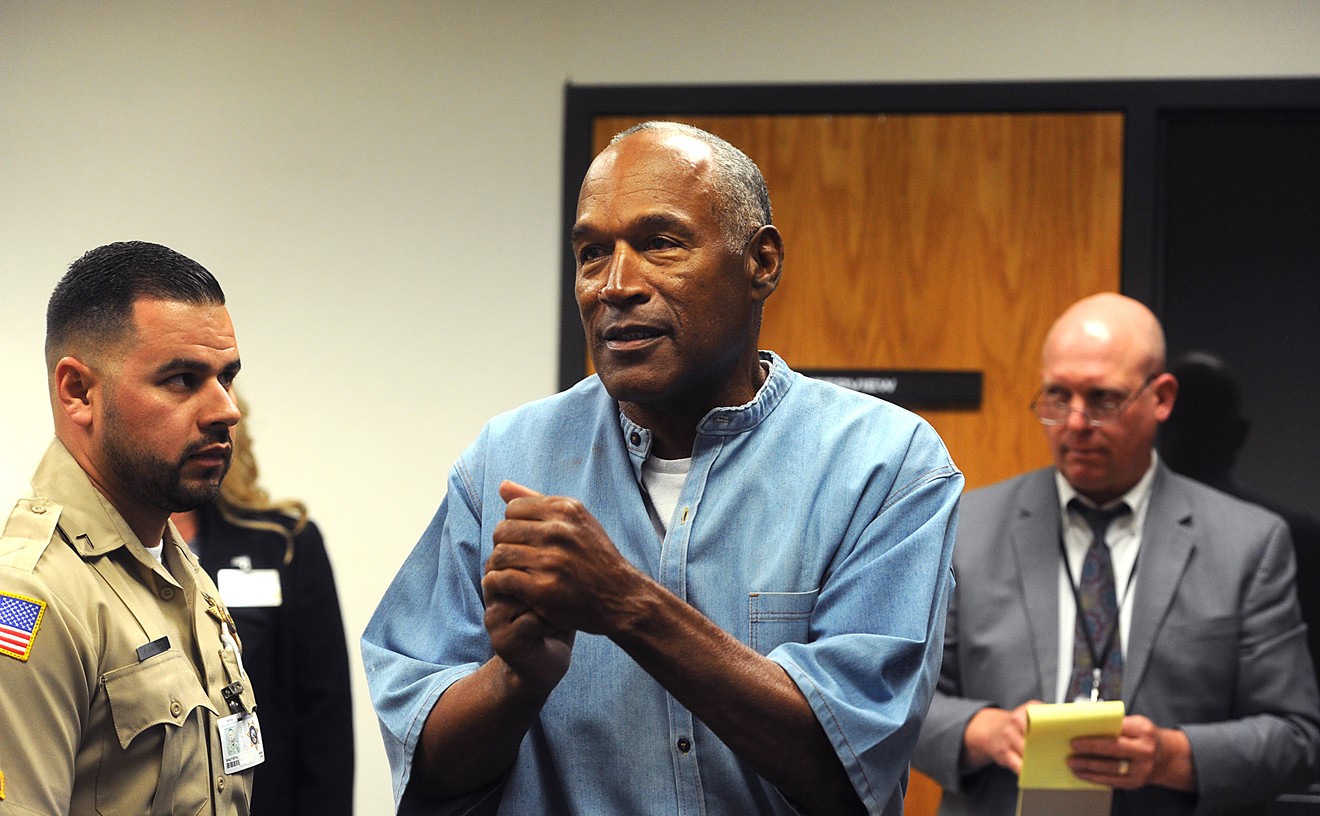That player is none other than taxi tycoon Sigmund "Ziggy" Zilber, whose transportation empire consists of 440 buses, minibuses, vans, cabs, and miscellaneous for-hire vechicles. Along with his son Martin and business partner Eddie Steinberg, Zilber owns Metro Limo, a fleet of 110 sedans and specially equipped vans that has provided handicapped residents with low-cost, round-trip rides to work, meetings, and doctors' appointments, as well as to stores and leisure destinations ever since the county inaugurated the program more than thirteen years ago.
But myriad service problems and a growth rate of twenty percent over the past six months have shaken riders' confidence in Metro Limo's ability to fill their needs. In order to participate in the program, riders must be unable to make use of other public transportation. Currently 1800 handicapped Dade residents, having provided the required physician's certification, are signed up for Special Transportation Services. The program, commonly known as STS, is subsidized by Dade's public-transportation budget, and costs riders between $1.50 and $4.50 for each one-way trip, with no restrictions on where they are allowed to go. Metro Limo is paid $14.40 per one-way trip for ambulatory riders and $24.37 per trip for people in wheelchairs.
STS suffered another setback in late September, when Contracts Manager Roberto Rodriguez was arrested for allegedly stealing more than $10,000 from county coffers. Rodriguez, who was suspended with pay, is scheduled to be arraigned October 21 on multiple charges of grand theft and forgery. Metro police uncovered Rodriguez's scheme while investigating charges of influence peddling in the program. Rodriguez had kept temporary employees on the payroll after they had quit, detectives found, and then collected their paychecks and cashed them himself. The temporary workers did not work in the STS program, according to Christina Sizemore, acting chief of the county's contracted-services division, which oversees the STS contract with Metro Limo. The police investigation is continuing.
STS has been receiving dozens of complaints about pickups that are late or missed altogether, stranded riders, and telephone callers being put on hold for long periods of time when they try to make reservations. "The clients are very unhappy," says Sizemore, who was promoted to her job last month after her predecessor, Cal Marsella, was reassigned because of all the complaints. "I've only been here a short time, and all I've heard is people are in an uproar."
When Zilber's firm had a subcontractor take over the dispatch system in early August, the switch to an automated reservation system immediately triggered criticism. "August was absolutely horrendous," says Mildred Levenson, a rider who has muscular dystrophy and relies on STS for transportation. "September was a little better. Cars were still late and ride reservations very, very difficult to make. I only took trips that were absolutely necessary."
One night in late September, STS failed to pick up Levenson after she had attended a performance at the Jackie Gleason Theater of the Performing Arts in Miami Beach. She'd made a reservation for 10:30 p.m., but when she called the dispatcher at 10:15 p.m. to make sure a driver was on the way, she was informed that all the STS workers had gone home. She called a beeper number she had been given for emergencies, but that, too, went unheeded. "I was terrified, absolutely terrified," the wheelchair-bound woman says of being stranded at the theater. Levenson says she couldn't take a cab, and her daughter couldn't come get her because her motorized chair required a hydraulic lift in order to be transported. By the time a disabled friend of Levenson's was able to locate a specially equipped vehicle to rescue her, it was nearly midnight.
Sizemore says the STS program continues to run erratically. "The problem keeps getting blamed on the automatic dispatch system, but I think there is more to it," says the administrator. "When you're dealing with the disabled, it's sad. I'd like to see more sensitivity. A person may be learning-disabled or in a wheelchair and can't be left on the streets for hours. These people aren't numbers or percentages of errors. It's been bad since August and it's not getting any better."
Last year complaints about poor service prompted County Commissioner Charles Dusseau to request an audit of STS. Auditors, who completed their analysis in June, found that among other problems, nearly three-fourths of the vehicles used by Zilber's company were not licensed by the county, and more than one-fourth of the drivers did not have valid taxi permits. The audit also criticized the county for not monitoring the contract more closely.
Martin Zilber, Ziggy's son and Metro Limo's attorney, criticizes the audit. "They made a lot of mistakes," he contends. "At all times we were properly inspected. The county was aware when we negotiated the contract two years ago that we didn't have enough vehicles and agreed to the extension knowing there were not enough licenses," adds Zilber, who says that about half the company's vehicles are unlicensed. "They pretty much agreed to allow us to use cars with no licenses."
In a mid-September response to the audit, Metro Transit Director Chester Colby explained that the rapid growth of the STS program required more vehicles than Zilber had anticipated in 1989. STS administrators are refusing to pay drivers of unlicensed vehicles and are reporting them to the county's Passenger Transportation Regulatory Division, which issues citations to the drivers. The county is also attempting to hire an additional contractor to help cope with the increased demand. Colby also says that more than one company might be awarded contracts this time around, which would provide a long-term solution.
Nearly 30 taxicab operators showed up for last week's informational meeting about the new contract, which is scheduled to take effect January 1 of next year. While his rivals prepare bids to take over the program, Zilber and his company are privately negotiating with high-ranking county administrators. "We want the extension," says Martin Zilber. "If we don't get it, there will be chaos and handicapped people won't be served. The county doesn't have enough time to set up a new program. We've offered a big discount off our current price."
"It's a very lucrative contract," says Americo Perez, vice president of Super Yellow Taxicab Co., a consortium of 100 taxi owners who pooled their resources in 1978 in order to create a consolidated dispatch network. Although Super Yellow plans to submit a bid, Perez is worried Zilber's substantial clout will allow him to successfully negotiate an extension. "There are 1800 cabs in Dade County and many of them are sitting idle. This guy is doing all the jobs with illegal cars."
Riders, who must sit by and wait while the bidding game proceeds, are wary of the winner, whoever it might be. "Any kind of change brings chaos," says a concerned Mildred Levenson. "In monthly meetings the contractor, county, and riders thrashed out individual problems and established procedures. When you work with the same company for nearly fourteen years, you naturally end up with procedures. We don't know what will be worse - the devil that we know or the devil that we don't know.










